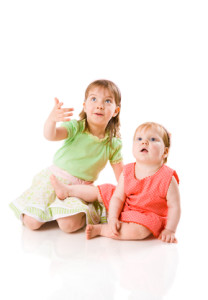All children have pretty good reasons for doing the things that they do and that includes babies and toddlers.
When my middle son was about 18 months old we joined a play group. I was sitting on the side with one of the moms as I was watching my son out of the corner of my eye. I saw him approach a 2 year old girl who was playing with a toy piano. He bent over the piano and banged on the keys. The girl let out a howl. He took his hand off the piano and she quieted down. He was intrigued. He banged on the piano once more, the girl again let out another howl. He took his hand away she stopped. His face had this look of wonder, he was learning the concept of cause and effect and was blown away by his new found power over other little people, “Wow, see what I can do! If I bang on the piano she yells, when I take my hand away she stops. This is fun!”
Was he being bad? I don’t think so! He was right on target developmentally. At this age, children combine simple actions to cause things to happen or change the way they interact with objects and people in order to see how it changes the outcome.The sense of control mixed with trying to master a new concept makes it hard for kids to stop. I think he could have continued annoying this little girl for another hour. I said, “Putting your hands on the piano is making this girl sad. See her face. Let’s go find another toy.” He was pretty upset when I whisked him away to find some other toy to play with.

As I mentioned, part of the cause and effect relationship is learning how their behavior has an effect on the people in their lives. They are learning that they can influence and manipulate the world around them. Babies love to see how their parents react. They are thinking: “ This is so cool if I throw my toy, then my mother will turn around and put it back on my tray! If I do it even more, look, my mom’s face turns red and she gets mad! This is a great game!”
Want to learn how this can impact the Sibling relationship?
Click here:
Sibling Rivalry: A Day In The Life Of A Parent Educator
Knowing why kids act the way they do at different developmental stages helps us be better, kinder and more effective parents.

